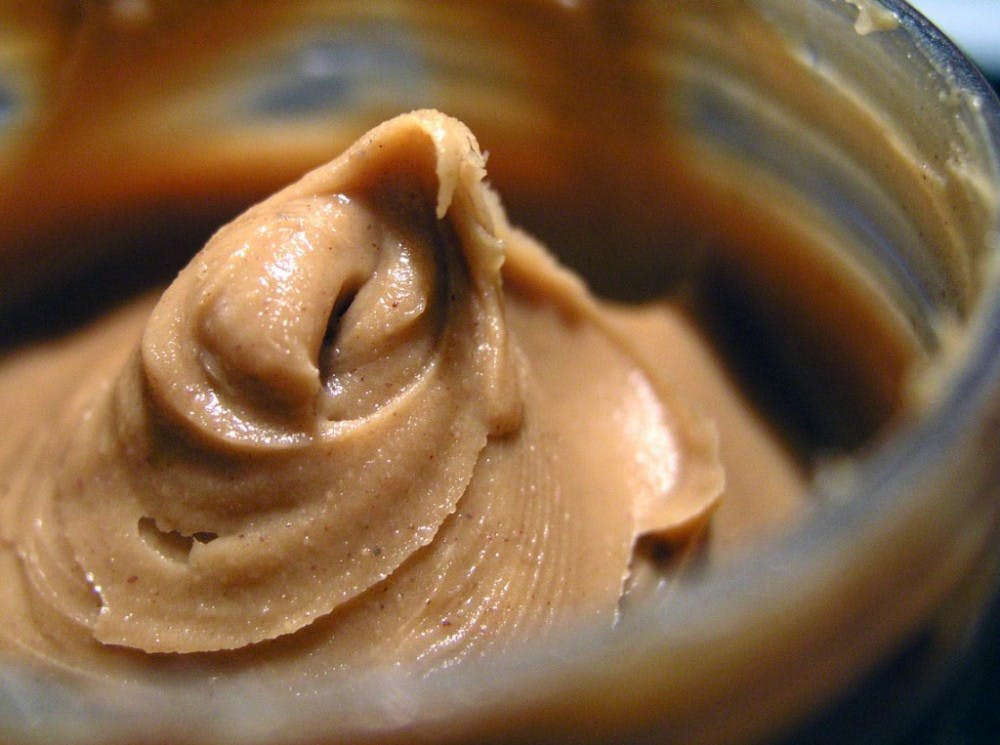A recent study published in the New England Journal of Medicine provides evidence that an early introduction of peanuts into the diets of infants will significantly reduce the risk of peanut allergy. More specifically, the study found that infants with a high risk of developing peanut allergy will be protected from having a peanut allergy at age five if they eat peanuts and peanut products frequently starting within the first 11 months of life.
The study, named the LEAP-On, was a follow-up of a study called LEAP (Learning Early About Peanut Allergy). Both studies were led by Professor Gideon Lack at King’s College London. LEAP-On was undertaken at Evelina London Children’s Hospital, and 550 patients from the original LEAP study participated in the trials. In the LEAP study, the participants were randomly split into two groups, called “avoid peanut” and “eat peanut.” Of the 550 LEAP-On participants, 280 were sorted into the peanut avoidance category, while 270 were sorted into the peanut consumption category during the original LEAP study. The questionnaire assessments following the study showed that the subjects had a 92 percent rate of adherence to these interventions.
Each participant was instructed to avoid peanuts for 12 months after they had completed the LEAP study, regardless of which group they were placed into at the start of the study.
The adherence to avoiding peanuts during this time frame was also found to be relatively high: it was 90.4 percent for participants in the original “avoid peanut” category and 69.3 percent for individuals in the original “eat peanut” category.
After the 12 months of no-peanut diets, a rigorous clinical assessment of peanut allergy was made by having the participants consume peanuts in different quantities. Additional peanut allergy assessments included a questionnaire, a skin prick test and the measurement of peanut-specific immune markers, such as IgE and IgG4, in the participants’ blood.
At six years of age, the individuals who had been randomly assigned to the peanut consumption category did not have an increase in peanut allergy after the 12 months of avoidance. More specifically, this increase was 3.6 percent in those who had consumed peanuts for 60 months versus 4.8 percent in those who had consumed peanuts for 72 months. In addition, it was found that those who had been randomly assigned to the peanut avoidance group had an allergy increase of 18.6 percent, significantly higher than the 4.8 percent increase found in the peanut-eating group. Furthermore there were only three subjects in that group who developed a new peanut allergy during the 12 months of peanut avoidance.
It was concluded that infants with a high risk of peanut allergy can reduce later cases if peanuts are introduced to their diet during the first year of life and consumption is continued until age five. Overall the study showed a 74 percent relative reduction in the prevalence of peanut allergy in those who consumed peanuts compared to those who avoided them.
“The aim of our study was to find out whether infants who had consumed peanut in the LEAP study would remain protected against peanut allergy after they stopped eating peanuts for 12 months,” Lack said in a press release. “LEAP-ON clearly demonstrates that the majority of infants did in fact remain protected and that the protection was long-lasting.”
Researchers noted the design of the LEAP study did not allow for a determination of the minimum frequency or amount of peanut consumption required in early childhood to prevent an allergic response. The authors of the study are planning to further examine the relationship between early-life peanut consumption and the ad-lib consumption of peanuts over many years.
“The longer-term effects of stopping eating peanuts following introduction early in life are not known, and further studies are needed,” Lack said. “Parents of infants and young children with eczema and/or egg allergy and so considered high-risk to peanut allergy should consult with an allergist, pediatrician or their general practitioner prior to feeding them peanut products.”





